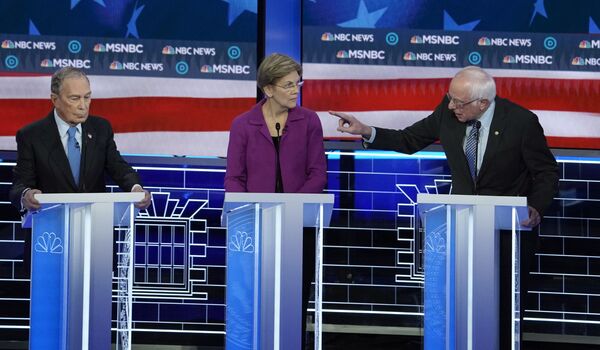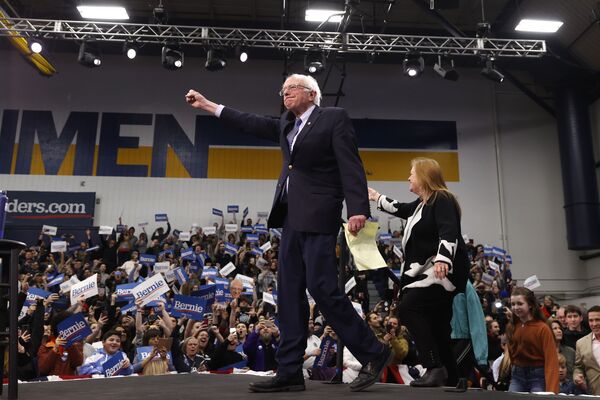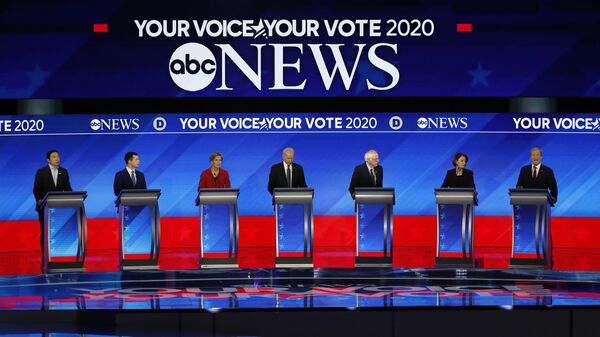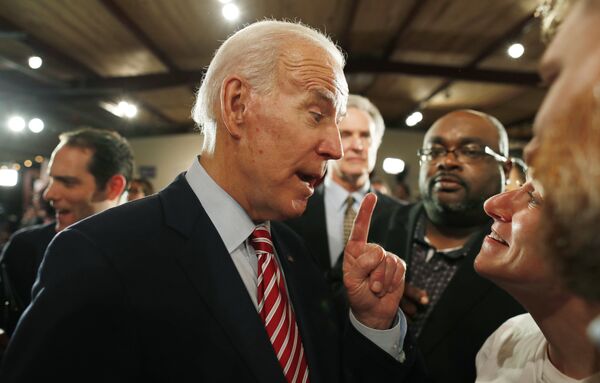- Nevada voters are set to go to the polls on Saturday for their caucus, with 36 of the state’s 48 delegates to be chosen based on the results of voting. The remaining 12, known as superdelegates, will be selected on the basis of their position, including congressional lawmakers and Democratic Governor Steve Sisolak. However, unlike during the contentious 2016 race, superdelegates won’t have the right to select their own candidate at the convention in July if a candidate secures 1,991 pledged delegates (i.e. just over half of the total) in the primaries. Based on the latest polling, Senator Sanders is expected to win Nevada, with a whopping 18 point+ lead. However, how many delegates that adds up to remains to be seen, given that in Iowa, Sanders got fewer delegates despite beating Buttigieg in total votes.
- After Nevada is the South Carolina primary, with 63 delegates for the state, 54 of them to be pledged to support the winners on February 29. According to an aggregate of polling published by RealClear Politics this week, former Vice President Joe Biden may just be on course to take the state, polling at 24.5 percent compared to Sanders’ 20.8 percent. Businessman Tom Steyer and Buttigieg follow up with 15.5 and 10.3 percent, respectively.

Senator Bernie Sanders (R) speaks to former New York City Mayor Michael Bloomberg (L) about the non-disclosure agreements at Bloomberg's company as Senator Elizabeth Warren listens at the ninth Democratic 2020 U.S. Presidential candidates debate at the Paris Theater in Las Vegas, Nevada, U.S., February 19, 2020.
© REUTERS / MIKE BLAKE
- Following South Carolina is Super Tuesday, the crucial March 3 event where major states including Democratic stronghold California, Texas, Alabama, Arkansas, Colorado, Maine, Massachusetts, Minnesota, North Carolina, Oklahoma, Tennessee, Texas, Utah, Vermont and Virginia will hold their primaries and caucuses. In all, as many as 1,617 delegates will be awarded, 1,357 of them on the basis of voting. California alone will allot a whopping 415 delegates, with 228 more up for grabs in Texas. In previous cycles, the results of Super Tuesday have often served as a weather vane of who goes on to win the nomination. In 2016, Hillary Clinton won seven of 11 Super Tuesday states, beating out Sanders and going on to win the nomination, only to lose to Trump in November. Similarly, in 2008, Barack Obama stomped Clinton 13 states to 10, with Clinton proving unable to recover by the time the August convention rolled around.
- After Super Tuesday, voters in Idaho, Michigan, Mississippi, Missouri, North Dakota and the state of Washington will go to the polls, further solidifying, or perhaps undermining, whoever comes on top on March 3.

Democratic US presidential candidate Senator Bernie Sanders pumps his fist and is accompanied by his wife Jane O’Meara Sanders as he arrives to speak at his New Hampshire primary night rally in Manchester, N.H., US, February 11, 2020
© REUTERS / Mike Segar
- Big states including Florida, Illinois and Ohio, as well as Arizona, will hold their primaries on March 17, with Georgia following up on March 24, with these races possibly becoming the last chance for a runner-up to overtake the frontrunner. Two more rounds – on April 4 (Alaska, Hawaii, Louisiana and Wyoming) and April 28 (New York, Connecticut, Delaware, Maryland, Pennsylvania and Rhode Island) will further solidify the results, with Wisconsin squeezed in between these contests on April 7.
- Things will slow down significantly after that, with Kansas and Guam holding their contests May 2, Indiana voting May 5, Nebraska and West Virginia holding primaries May 12, Kentucky and Oregon doing so May 19, and the District of Columbia, Montana, New Jersey, New Mexico and South Dakota doing so June 2. The Virgin Islands will have the honor of the last in the Union ballot, with their caucus to be held June 6 and awarding 11 delegates total (6 of them pledged).
- This year’s Democratic Convention will be held in Milwaukee, Wisconsin from July 13-16.




